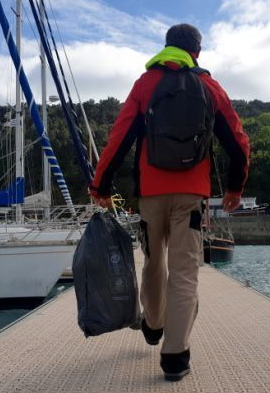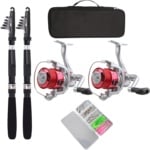When it comes to spending time out on the open water, it’s important to consider proper waste management on board your boat. Whether you’re planning a day trip or a longer voyage, it’s essential to establish systems and procedures to handle waste in an efficient and environmentally-friendly manner. From managing trash and recyclables to dealing with wastewater and sewage, taking the right steps can help preserve the beauty of our oceans and ensure a safe and enjoyable experience for everyone on board. So, let’s take a closer look at what should be considered for onboard waste management on a boat.
Waste Management Regulations
When it comes to onboard waste management on a boat, there are important regulations to keep in mind. These regulations are in place to ensure the proper handling and disposal of various types of waste. There are both international and local regulations that boaters must abide by.
International Regulations
International regulations for waste management on boats are crucial as they aim to protect the environment and prevent pollution. The International Maritime Organization (IMO) has established guidelines for the safe and environmentally friendly management of waste on vessels. These regulations cover everything from solid waste disposal to wastewater treatment. It is important for boaters to familiarize themselves with these regulations to ensure compliance and responsible waste management.
Local Regulations
In addition to international regulations, boaters must also comply with local waste management regulations. Each country may have its own set of rules and requirements when it comes to waste disposal from boats. It is important to research and understand the local regulations of the waters you will be navigating. This will help you avoid any legal issues and ensure that you are doing your part to protect the local environment.
Types of Onboard Waste
Understanding the different types of waste generated onboard is essential for effective waste management. There are three main types of waste commonly produced on boats: solid waste, liquid waste, and hazardous waste.
Solid Waste
Solid waste refers to any non-liquid waste materials produced onboard. This can include items such as food packaging, paper products, and other materials. It is important to minimize the amount of solid waste generated, as it can quickly accumulate and take up valuable space onboard. Proper storage and disposal methods should be implemented to prevent any negative environmental impacts.
Liquid Waste
Liquid waste includes any non-hazardous liquid substances that are generated onboard. This can include wastewater from sinks, showers, and laundry facilities. Proper treatment and disposal of liquid waste are crucial to prevent pollution and protect the marine environment. Methods such as filtration and treatment systems should be in place to ensure that liquid waste is properly managed.
Hazardous Waste
Hazardous waste refers to any waste that is potentially harmful to human health or the environment. Onboard boats, this can include items such as batteries, paints, cleaning chemicals, and other toxic substances. It is important to handle and dispose of hazardous waste with extreme caution to prevent any harm. Separate storage areas and protective gear should be used when dealing with hazardous waste to ensure the safety of those onboard.
Waste Reduction
Reducing the amount of waste generated onboard is a key component of responsible waste management. By implementing waste reduction strategies, boat owners and operators can minimize their environmental footprint and contribute to a cleaner and healthier marine ecosystem.
Minimizing Packaging
One effective way to reduce waste is by minimizing packaging. When provisioning for a trip, choose products that have minimal packaging or opt for bulk items that can be stored in reusable containers. By reducing unnecessary packaging, you can significantly reduce the amount of solid waste generated onboard.
Encouraging Recycling
Another important waste reduction strategy is to encourage recycling onboard. Provide designated recycling bins for items such as paper, plastic, glass, and aluminum. Educate passengers and crew about the importance of recycling and make it easy for them to participate. Recycling not only helps reduce waste but also conserves valuable resources.
Composting Food Scraps
Food scraps are a significant source of waste generated onboard. Instead of throwing them away, consider implementing a composting system. Composting food scraps not only reduces waste but also creates nutrient-rich soil that can be used for onboard gardening or donated to local gardens. This sustainable practice helps close the loop and contributes to a more circular economy.
Storage and Sorting
Proper storage and sorting of waste are essential for effective waste management onboard a boat. By having designated waste storage areas, clear labeling and signage, and separate containers for different types of waste, you can ensure that waste is properly handled and disposed of.
Designated Waste Storage Areas
Having designated waste storage areas helps keep the boat organized and ensures that waste is properly segregated. These areas should be easily accessible but away from living spaces to avoid any unpleasant odors or contamination. It is important to regularly empty and clean these storage areas to prevent any health hazards.
Clear Labeling and Signage
Clear labeling and signage are essential for effective waste management onboard. Make sure that all waste containers are clearly labeled to indicate what type of waste should be placed in them. This helps prevent confusion and ensures that waste is sorted correctly. Clear signage should also be displayed in common areas to remind passengers and crew about proper waste management practices.
Separate Containers for Different Types of Waste
To facilitate proper waste sorting, it is important to have separate containers for different types of waste. This includes containers for solid waste, liquid waste, and hazardous waste. By having designated containers, you can easily sort and dispose of waste in the appropriate manner. Make sure these containers are easily identifiable and placed in convenient locations throughout the boat.
Waste Disposal Methods
Proper waste disposal is crucial to prevent pollution and protect the marine environment. There are various waste disposal methods available for boaters, including land-based disposal, marine waste treatment systems, and incineration.
Land-based Disposal
Land-based disposal involves properly disposing of waste at designated facilities on land. This can include disposing of solid waste and non-hazardous liquid waste in designated bins or recycling centers. It is important to follow local regulations and guidelines when utilizing land-based disposal methods to ensure proper waste management.
Marine Waste Treatment Systems
Marine waste treatment systems are specifically designed for boats and help treat and dispose of onboard waste. These systems can effectively treat both liquid and solid waste, ensuring compliance with regulations and minimizing the environmental impact. By utilizing marine waste treatment systems, boaters can effectively manage their waste without harming the marine environment.
Incineration
Incineration is another waste disposal method that can be utilized onboard a boat. Incinerators burn waste at high temperatures, reducing its volume and eliminating harmful pathogens. However, it should be noted that incineration can release air pollutants and greenhouse gases, so it is important to utilize this method responsibly and ensure compliance with applicable regulations.
Safety Measures
Safety should always be a top priority when handling and disposing of waste onboard a boat. Implementing proper safety measures helps protect both the onboard individuals and the environment.
Protective Gear for Handling Hazardous Waste
When dealing with hazardous waste, it is important to wear proper protective gear. This includes gloves, masks, and goggles to prevent exposure to harmful substances. By wearing appropriate protective gear, you can minimize the risk of accidents or injuries associated with hazardous waste handling.
Proper Disposal Procedures
Following proper disposal procedures is essential to prevent any harm from waste. This includes following guidelines provided by manufacturers for the disposal of specific products, such as batteries or cleaning chemicals. Make sure to carefully read and understand the disposal instructions for all waste materials onboard.
Training and Education
Providing training and education to passengers and crew members is key to ensuring that waste management practices are carried out safely and effectively. Conduct regular training sessions to educate everyone onboard about the importance of responsible waste management and the proper procedures for handling and disposing of waste. A well-informed crew and educated passengers can help create a waste-conscious environment onboard.
Greywater Management
Greywater refers to wastewater from sinks, showers, and other non-toilet plumbing fixtures onboard a boat. Proper management of greywater is essential to prevent pollution and protect water quality.
Treatment and Filtration Systems
Installing treatment and filtration systems for greywater can help remove impurities and contaminants before discharge. These systems typically involve a combination of filters and chemical treatments to ensure that greywater meets environmental standards. By implementing treatment and filtration systems, boaters can minimize the impact of greywater on the marine environment.
Limiting Discharge
To further reduce the impact of greywater, it is important to limit its discharge. This can be done by reducing water usage, such as using more efficient fixtures and appliances onboard. Additionally, boaters can consider utilizing water-saving practices, such as collecting rainwater for non-potable uses. Less discharge means less potential pollution and a healthier marine ecosystem.
Using Environmentally Friendly Cleaning Products
The choice of cleaning products can have a significant impact on the quality of greywater discharge. By using environmentally friendly and biodegradable cleaning products, boaters can minimize the introduction of harmful chemicals into the marine environment. Look for products that are labeled as “green” or “eco-friendly” to ensure that they are safe for both onboard use and marine life.
Blackwater Management
Blackwater management is a crucial aspect of waste management onboard a boat. Blackwater refers to wastewater from onboard toilets and contains human waste and potentially harmful pathogens.
Marine Sanitation Devices
Marine sanitation devices (MSDs) are designed to treat and manage blackwater onboard a boat. These devices can include holding tanks, maceration systems, or treatment plants. The type of MSD required will depend on the size of the boat and the regulations of the waters you are navigating. It is important to regularly maintain and monitor MSDs to ensure their proper functioning.
Disposal at Pump-Out Stations
To properly dispose of blackwater, boaters should utilize pump-out stations. These stations are equipped with facilities to remove and dispose of blackwater from onboard holding tanks. Pump-out stations can be found at marinas or designated areas along waterways. It is important to plan ahead and know where pump-out stations are located to ensure proper blackwater disposal.
Proper Maintenance of Holding Tanks
Holding tanks are essential for storing blackwater onboard a boat. Proper maintenance of these tanks is necessary to prevent odors, leaks, and other issues. Regularly empty and clean holding tanks to ensure their effectiveness and prolong their lifespan. Follow manufacturer guidelines and local regulations when handling and maintaining holding tanks.
Educating Passengers and Crew
Educating passengers and crew members about waste management practices is key to creating a waste-conscious environment onboard. By promoting awareness and providing information, you can encourage responsible waste management and reduce the environmental impact of boating activities.
Waste Management Policies and Procedures
Clearly communicate waste management policies and procedures to all onboard individuals. This can include providing written guidelines or hosting training sessions to ensure that everyone understands their role and responsibilities. Make sure to address specific regulations and practices related to waste management onboard the boat.
Importance of Responsible Waste Management
Highlight the importance of responsible waste management and the impact it has on the marine environment. Educate passengers and crew members about the potential consequences of improper waste disposal, such as water pollution, harm to marine life, and damage to ecosystems. By emphasizing the importance of responsible waste management, you can foster a sense of environmental stewardship among those onboard.
Tips for Minimizing Waste
Provide practical tips and suggestions for minimizing waste onboard. This can include using reusable items instead of disposable ones, avoiding single-use plastics, and practicing portion control to minimize food waste. Encourage passengers and crew members to adopt these waste reduction strategies and lead by example. Small changes can make a big difference in reducing waste generation onboard.
Monitoring and Reporting
Monitoring and reporting are important aspects of onboard waste management. By implementing regular inspections, keeping records, and reporting compliance, boaters can ensure that waste management practices are being followed and any issues are addressed promptly.
Regular Inspections
Regularly inspecting waste storage areas, treatment systems, and other relevant areas can help identify any potential issues or breaches in waste management practices. Schedule inspections at regular intervals and document any findings or required actions. Inspections serve as an opportunity to proactively address any waste management concerns and ensure ongoing compliance.
Keeping Records
Maintaining records related to waste management is essential for accountability and compliance purposes. This includes keeping track of waste disposal receipts, maintenance records for treatment systems, and any other relevant documentation. Accurate record-keeping helps demonstrate that proper waste management procedures are being followed and allows for easy reference in the event of audits or inspections.
Reporting Compliance
It is important to report compliance with waste management regulations, both internally within the boat’s management and to relevant authorities. This can involve submitting documentation, reports, or other forms of communication to demonstrate adherence to regulations. By reporting compliance, you contribute to the overall transparency and accountability of waste management practices onboard.
In conclusion, efficient waste management is crucial for the responsible stewardship of our oceans and waterways. By understanding and complying with waste management regulations, reducing waste generation, implementing proper storage and sorting methods, utilizing appropriate waste disposal methods, prioritizing safety measures, and educating passengers and crew members, boaters can contribute to a cleaner and healthier marine environment. Regular monitoring and reporting ensure ongoing compliance and promote continuous improvement in waste management practices. By actively promoting responsible waste management, boaters can play their part in preserving our precious aquatic ecosystems for future generations to enjoy.





